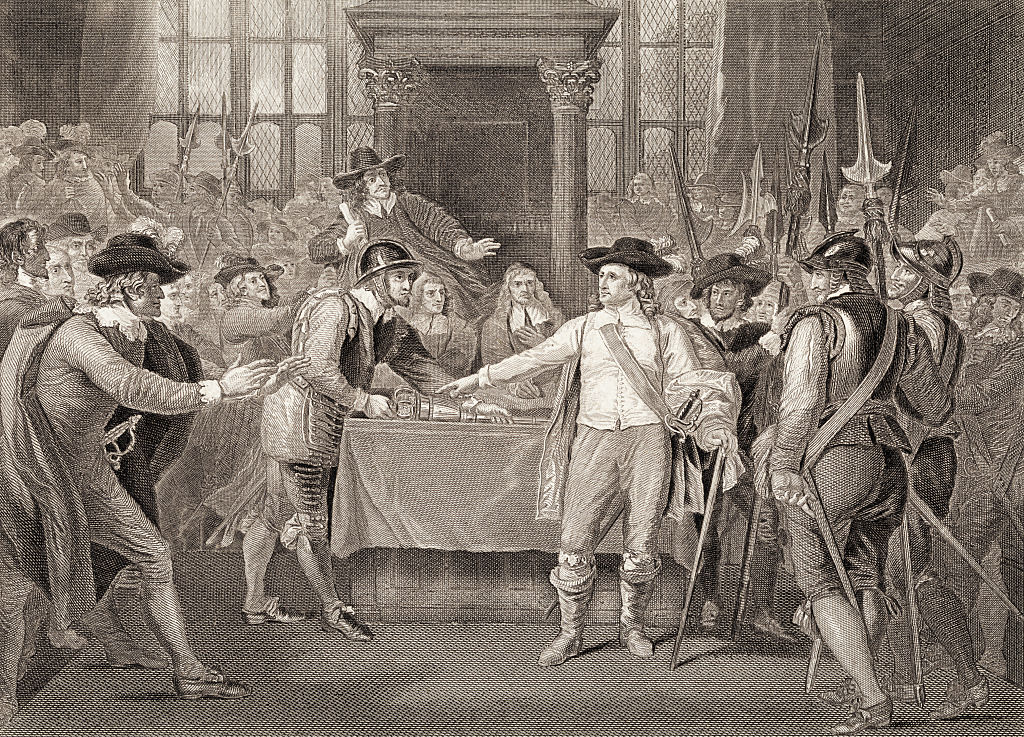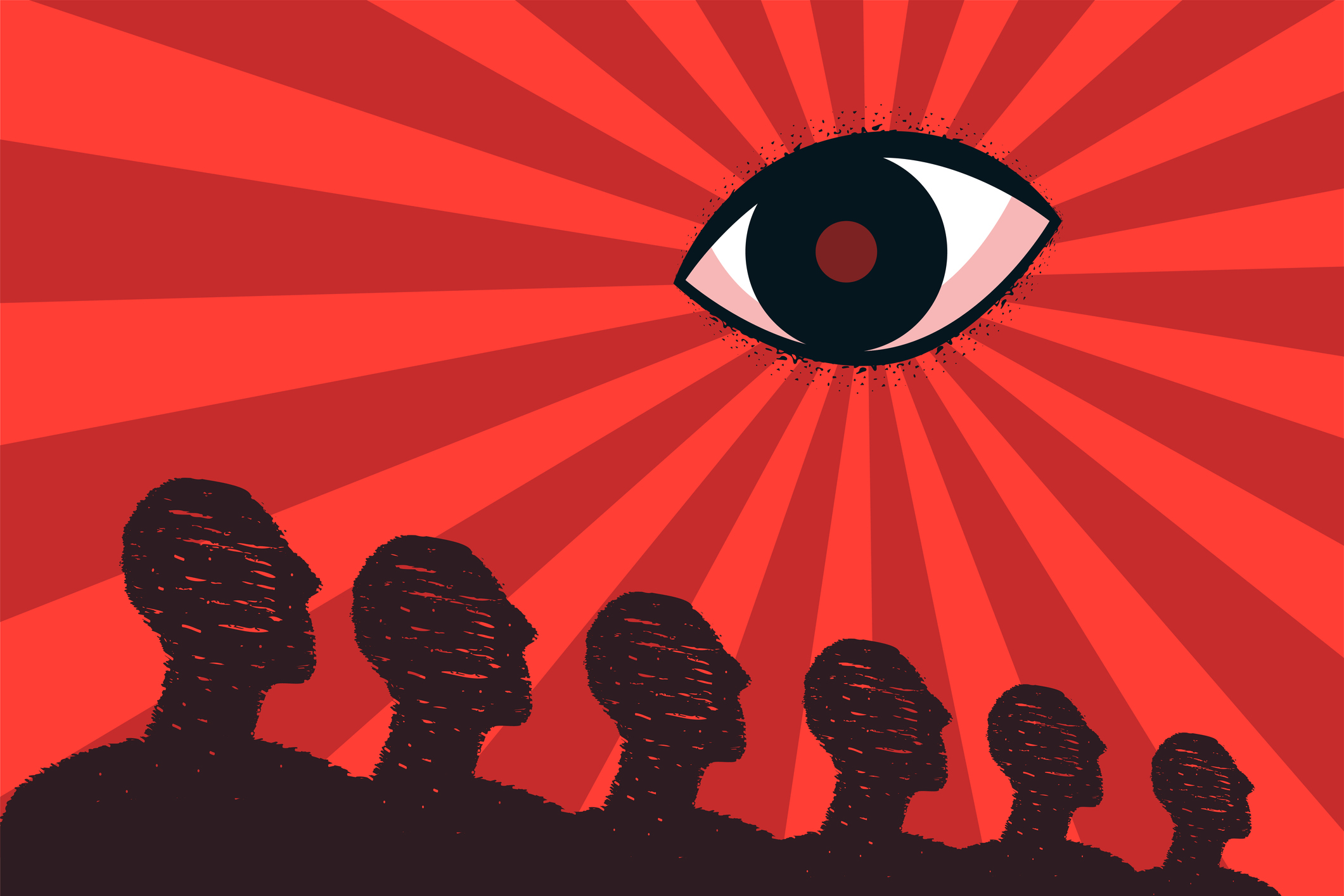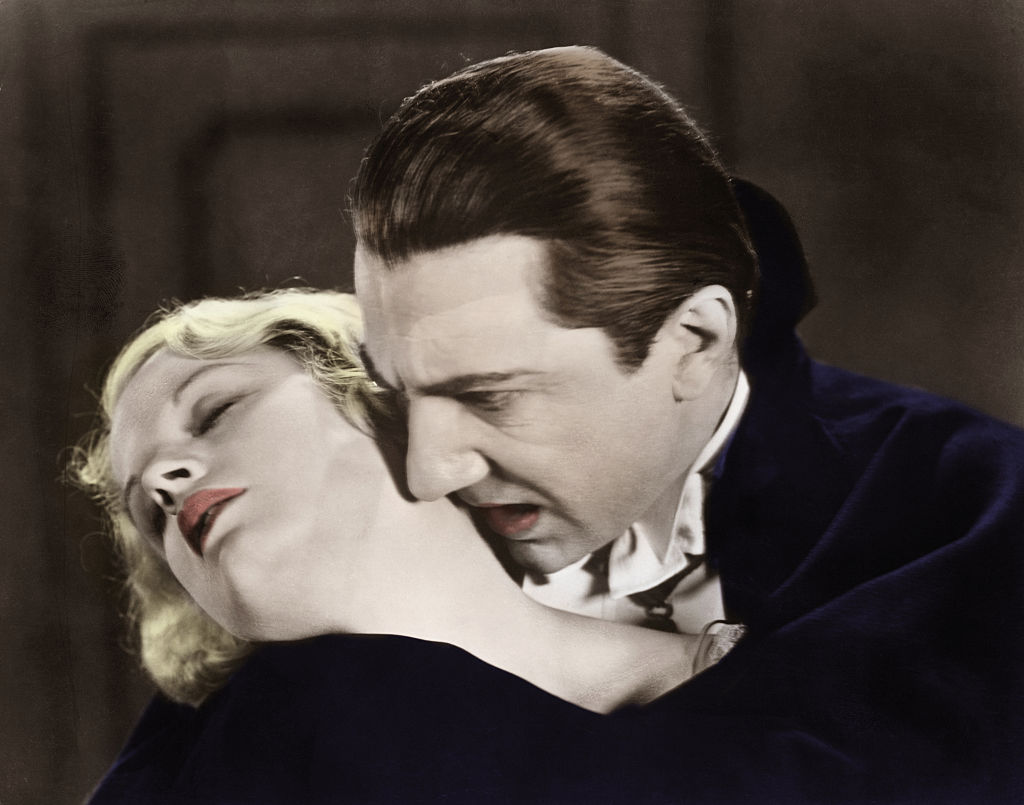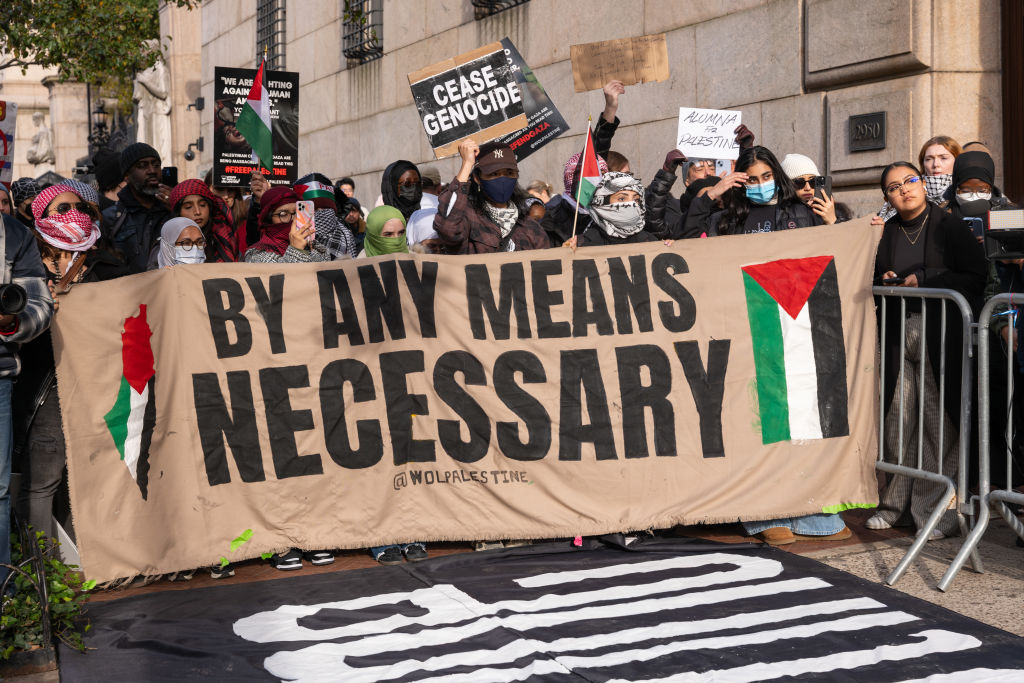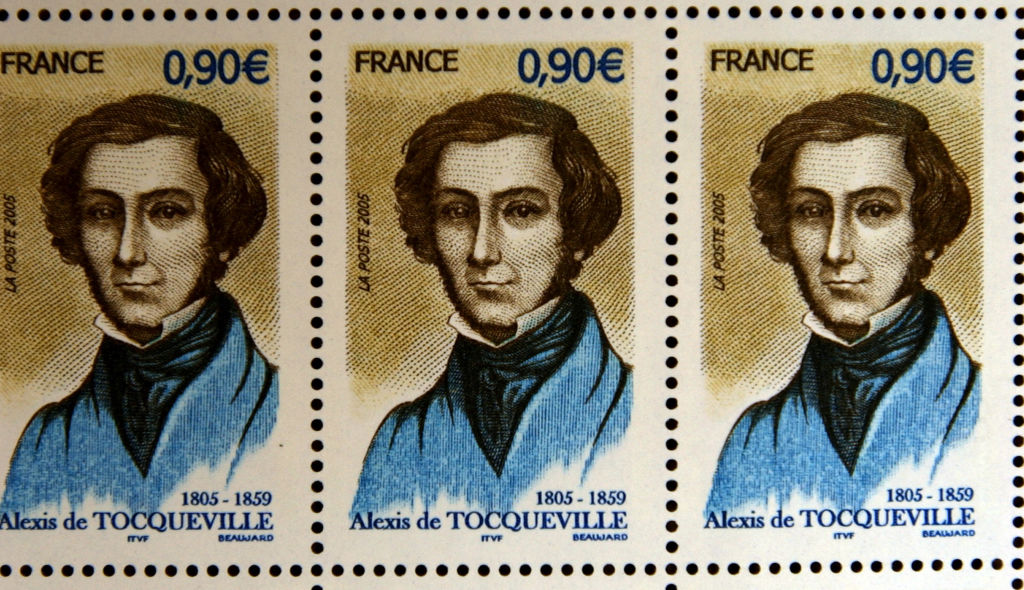Only by resisting the invasion of the spiritual kingdom by the temporal can digital despotism be condemned.
Victimhood and Vanity
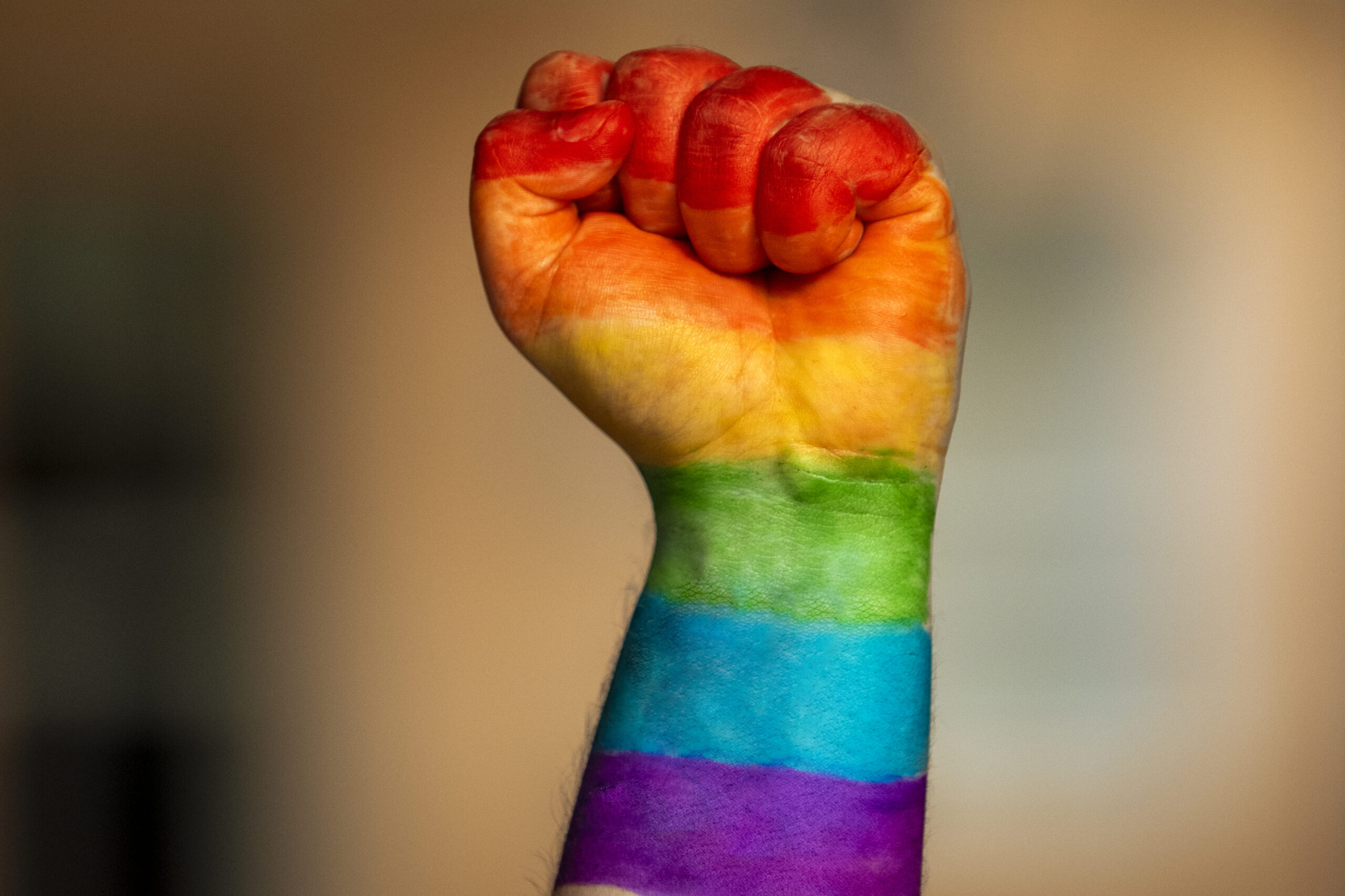
“Pride Month” and the cardinal sin.
In some ways, the supersonic growth of “Pride Month” over the last few years was extremely unlikely. In other ways, it seems to have been inevitable.
Prior to our secular age, the word “pride,” for most people, would have suggested the medieval notion of the seven deadly sins, among which prideful indulgence was chief. Further, many would recall the passage from the Book of Proverbs that cautions us that “pride comes before a fall.”
Although pride was often viewed as a danger and a threat in the past, my point isn’t that young people today see it in a purely positive light. Like most people, their moral judgments of pride depend on exactly what a person claims to be proud of. Gay pride, obviously, is justified and good. But expressions of straight pride would infuriate some and befuddle many. Black pride is clearly virtuous—displays of it are routinely incorporated into many public and private events. White pride though—not just the violent and hateful kind, mind you, but any appreciation of the Euro-American tradition as such—is entirely forbidden in all polite corners of society, and expressions of it are policed and suppressed. Similarly, national pride—that is, pride in being an American—is labelled as toxic. But national pride for someone from Mexico or Honduras must be celebrated and encouraged in the name of tolerance, as indicated by the thousands of people illegally crossing America’s southern border who proudly fly the flags of all the nations to our south. You know: the nations they are fleeing in droves.
So, what is this arcane moral calculus that determines which expressions of pride are virtuous and which are profane? We must first consider the nature of pride and reflect upon the reasons that people might experience it. Generally speaking, people have pride for who they are, what they do, or what they have. Applied to LGBTQ identity and the politics of Pride Month in particular, we find that the very notion of gay pride is dubious—at least when measured against the other pieties of the political Left.
LGBT Pride in Who They Are
People are proud of who they are when they recognize a feature of themselves that is better than most people. LeBron James is justifiably proud of who he is—he’s a better basketball player than almost anyone. Pride in excellence makes sense, but pride in mediocrity doesn’t. If someone who is simply average at basketball expresses a great deal of pride in their abilities on the court, this seems strange to us. Being the valedictorian of your law school class is a rational basis for self-pride. Barely graduating is not. Further, self-pride must be rooted in something that matters to other people. Being proud of a birthmark shaped like a star is unjustified.
Now, let’s consider whether the LGBT community’s pride can reasonably extend from personal identity or who they are. Is there a feature of gay people and associated groups that makes them better than the average person in some way? For most of the twenty-first century, LGBT groups insisted they were completely normal people—just like everybody else. Andrew Sullivan was among the loudest voices professing the banality of homosexuality. This idea was central to the demand for gay rights. “Born this way” was the mantra: being gay was framed simply as a pre-existing, natural element of your personhood. To express pride for being gay is something like expressing personal pride for having curly hair or having a star-shaped birthmark. You’re taking pride in a random accident of birth, which doesn’t make a lot of sense.
Of course, Sullivan himself has recently noted a distinction between the “homosexuals” of 20 years ago (whom he alleges saw themselves as regular people) and the “queers” of today (who seem invested in rejecting and undermining any shared notion of normalcy). He worries that the queers’ political power has now eclipsed that of the homosexuals. To my eye, the queers at the vanguard of the LGBT movement reflect what Francis Fukuyama recently called “megalothymos”—a feeling that one is superior to the normies of society. Megalothymos demands that others recognize your superiority. This, for example, is what “neo-pronouns” are all about: expecting others to use made-up words when referring to you is just a way to force them to affirm your vanity. This megalothymic imperative forms the core of LGBT pride.
But if LGBT people are superior to others in some way, their pride must not be based in who they are. After all: we’ve been told they couldn’t have been anyone else, and beyond that, who they are is entirely normal. This suggests that perhaps their pride extends not from who they are but from what they do.
LGBT Pride in What They Do
Pride can also extend from certain kinds of action. Perhaps you volunteer at the homeless shelter. You likely don’t have any aptitude that makes you uniquely equipped for that job. That is, your pride for doing this work isn’t based in who you are. After all, anyone could serve as a volunteer. The point is that they don’t do it—and you do. You make the time to help people. And this kind of selfless deed serves as the basis of your pride at volunteering. Similarly, it would make sense to take pride in being a particularly effective teacher. Teaching is an activity that must be learned, and if you do it better than most, then it makes sense to be proud.
Most other people—people who don’t teach and people who don’t volunteer—will nevertheless recognize the importance of teaching and the virtue of volunteering time to help those in need. But the particular activity in question matters. Although a small amount of pride might be justified if you are particularly good at card tricks, that can’t form the basis of a healthy, fulfilled sense of self. The reason is that most people don’t care that much about card tricks.
Before assessing whether LGBT pride is justified on the grounds of what they do, we have to answer an obvious question: what do they do? It seems the distinctive part of the LGBT experience lies in certain forms of sexual attraction and personal experiences of sex and gender identity. But these things are part of who you are, not what you do. A primary activity, then, is LGBT sex—the actual deeds that extend from these sexual attractions. But is it reasonable to have pride in having sex? Or having a particular kind of it? Or a certain amount of it? It seems the answer is “no.” These deeds are simply the satisfaction of preexisting appetites. No one is proud of being hungry, no one is proud at having satisfied their hunger by eating lunch, and only a child would be proud of eating three plates of spaghetti when everyone else only ate one.
But perhaps the sex itself isn’t the activity that forms the basis of LGBT pride? Arguably, other activities that define LGBT identity are forms of activism and political agitation. Since the Obergefell ruling, LGBT groups have done an extraordinary amount of activism, racking up victory after victory. Public schools are awash in LGBT propaganda. The public debate on gay marriage is ancient history—we’re now debating how young is too young for children to begin medical interventions to “reassign” their gender. Academics are rebranding pedophiles as “minor-attracted persons” (MAPs) to destigmatize child molestation. Trans people are invited to get naked on the White House lawn. The pride flag flies atop the flagpole at American embassies around the world. These successes are certainly impressive and could therefore serve as the basis for pride.
But force-feeding LGBTism to the public in every sphere of American life—education, sports, film, journalism, the workplace, etc.—is a kind of cultural imperialism. It is ideological conquest, an aggressive effort at institutional capture. The issue here is that the left-wing worldview that animates LGBTism insists that imperialism, conquest, and ideological coercion are morally indefensible. These efforts erase cultural difference, spread intolerance of diverse groups (like religious people, traditionalists, and the so-called “cisgendered”), and erode personal freedom of expression. While the LGBT movement’s cultural conquest is certainly impressive, it can’t serve as the basis for pride: rather, the guiding morality of leftism holds that colonialism and conquest are deserving of shame.
The “Pride” that animates the month of June then cannot be rooted in who LGBT persons are nor in what they do. But there’s another possibility.
LGBT Pride in What They Have
People are often proud of their personal possessions. But when it comes to large groups taking pride in their property (particularly identity-based groups), things are more complicated. This is because identity groups rarely share joint ownership of anything concrete. For example, many people have pride in their hometown. Their hometown pride derives from an inheritance. They recognize a continuity between themselves and the prior inhabitants of their city—those who played a historical role in making it the place it is now.
The most common example of this phenomenon is national pride. But again, the Left have attacked nationalism and patriotic pride for decades. The Left hates the very idea of inheritance, which they always insist upon reading as evidence of ill-gotten “privilege” rather than a cause for pride. The Left also hates inheritance because it binds us to the past—it reminds us that who we are is not simply an extension of our independent will but is determined in large part by who came before us. Our forebears served as good stewards of what they inherited. And their stewardship obliges us to care for what we inherited so that we too may pass it on. These obligations impinge on the total freedom of the individual, an idea that is absolutely central to the Left’s utopian dreams. Therefore, any inheritance—which amounts to unwanted obligation—must be denigrated.
Strange, then, that the most likely source of the pride that animates Pride Month is the cultural inheritance of their LGBT forebears. As we have seen, you can’t be proud of just any cultural inheritance. But there is one criterion that allows pride for one’s inheritance to avoid the label of “privilege.” Specifically, that criterion is historical, identity-based victimhood and suffering.
The status of LGBT persons as historical victims is the root of their pride, and the unspoken justification for Pride Month. Stonewall—the event often cited as the beginning of the gay rights movement—lives on in LGBT memory as the event that defines their collective identity. The police harassment of those men stands as a metonym for all of the suffering and victimization of the various groups now crammed under the LGBT umbrella. Their resistance at Stonewall serves as the prototype for the pathos of the movement today, which is embodied by righteous indignation and aggressive forms of activism and ideological conquest designed to erase our inherited traditional values from public life.
Since LGBT pride cannot logically extend from who they are or what they do, the true locus of this pride is in what they have: a cultural inheritance from the past. Nevertheless, this inheritance can’t be maligned as mere “privilege,” because this pride centers on a legacy of victimhood and suffering. These serve as trump cards that set their cultural conquest beyond moral reproach. Absolved of these secular sins, LGBT pride can never be tarnished—no matter how powerful the movement becomes, and no matter how obligatory genuflection to the new religion becomes in public life.
Reactive Politics and Backwards Pride
In one of his defining works, Nietzsche demonstrated how Western culture shifted from a noble conception of the good as rooted in power, excellence, and action to what he called a “slave morality” that elevated victimhood as the basis of goodness, weakness as a form of strength, and ressentiment as a cause of (re)action. This transformation continues to roll across our society, conquering the last vestiges of noble values. Pride Month—which celebrates a pride based in historical victimhood, reasserted as the justification for power—is a most vibrant example of Nietzsche’s critique.
But Nietzsche also pegged Christianity as the root of the “slave morality” he condemned. He looked to the teachings of Jesus and noted how Christ emphasized that the meek would inherit the earth, how grace is perfected in weakness, and how his messianic triumph was won through his victimization by the great (Roman) noble powers of his day. There is a strong irony here: although the LGBT movement (and leftism at large) seeks to erase any remaining power that Christianity has in American life, its entire concept of ethics is inherited from a religion that it now sees as its primary enemy.
In The Death of Satan: How Americans Have Lost the Sense of Evil, Andrew Delbanco explains how American culture moved from an early literal idea of Satan as a real presence in our world to a sense of the devil as a metaphorical concept. Satan, he notes, has always been a symbol of pride. But in the nineteenth century, as Manifest Destiny seemed to denote limitless possibility for the nation and for the self, and as the Protestant work ethic and the idea of the self-made man were elevated in the American imagination, the result was the installation of “the individual at the center of life.” “By 1850,” Delbanco explains, “Americans found themselves both liberated and imprisoned by the enormously compelling idea—once decried as pride—of the striving self. There could be no place for the old devil in this new world, whose religion was pride of self.” In the minds of Americans, the individual became God—and personal gratification was a form of ritual worship.
Pride Month, perhaps, is too ridiculous to be satanic. But its name, coupled with its unmistakable religious overtones (embodied in the sacralization of the self), demonstrate a few things. First, contrary to the protests of the Left, the new secular ethic is not opposed to Christian ideas of the good. It is simply a perversion of them. Without an anchor in notions of self-sacrifice and metaphysical transcendence, the entire house of cards now threatens to collapse. Second, it shows the solipsism and tautological nature of the pride at the heart of Pride Month. In its fetishization of the suffering self, stripped of any imperative of selflessness, it reminds us again why pride represented the cardinal sin.
The American Mind presents a range of perspectives. Views are writers’ own and do not necessarily represent those of The Claremont Institute.
The American Mind is a publication of the Claremont Institute, a non-profit 501(c)(3) organization, dedicated to restoring the principles of the American Founding to their rightful, preeminent authority in our national life. Interested in supporting our work? Gifts to the Claremont Institute are tax-deductible.
How radical relativism leads to ideological fanaticism.
Conservatism and vampire stories.
Liberal Jews are desperate to maintain the delusion that their major enemies are outside the house.
Young Nietzscheans should look to Tocqueville as a more politically responsible source for a new politics.
Higher education has always been a religious quest.

